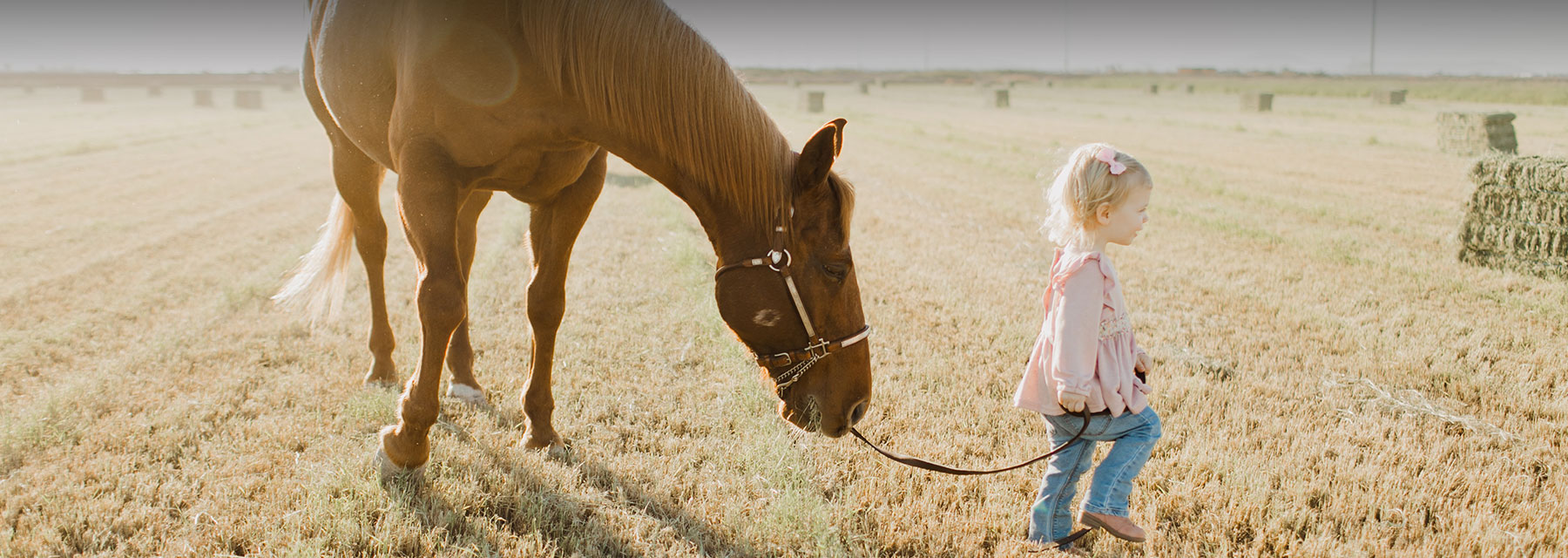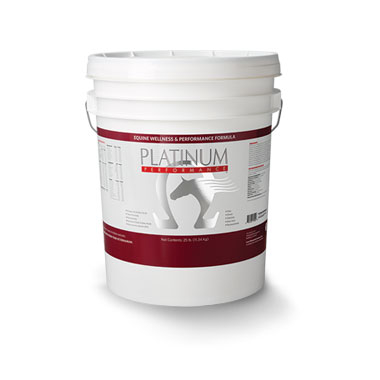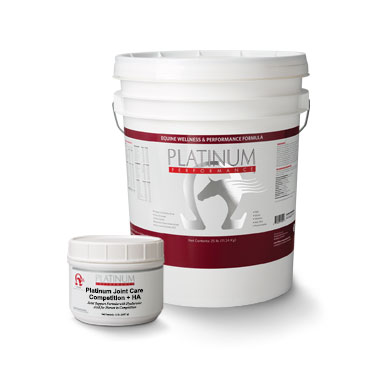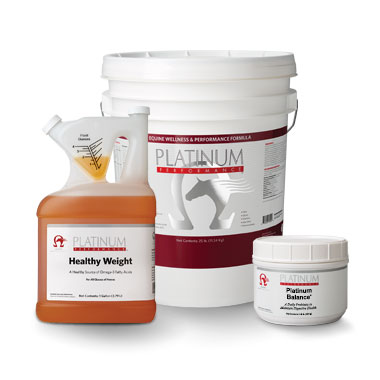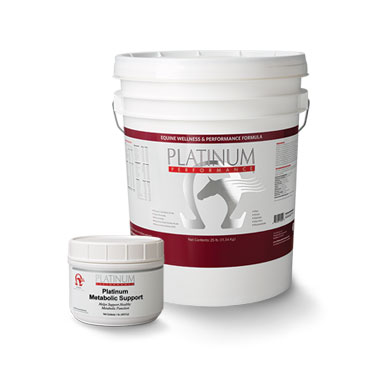A combination of veterinary care, tailored nutrition and owner dedication is allowing senior horses to thrive and live healthy and active lives longer than ever before.
Aging is a natural and inevitable process. Individual horses age uniquely, and the actual age when a mature horse becomes a senior horse can be subjective. It is now quite common to see horses in their twenties still actively competing and living well into their thirties and beyond. Horses over 15 years old are generally considered “aged” or senior horses. Aging horses comprise an increasing proportion of horses in developed countries. An estimated 30 percent of the horse population in the United Kingdom is 15 years or older, and a 2015 survey from the National Animal Health Monitoring System (NAHMS) determined that approximately 11.4 percent of horses in the United States are over 20 years old. An increased willingness and dedication of owners and care takers to maintain older horses is reflected by senior horses thriving, living healthier and athletically-active lives longer than ever before and changing public perception that age may truly be just a number.
The Importance of Veterinary Care
Advances in veterinary care have played a significant role in the increasing longevity of senior horses. Routine veterinary care is important for all horses but is imperative for maintaining senior horse health. A veterinarian will ensure a regular vaccination schedule, assess body condition, recommend an appropriate de-worming schedule, determine comfort level and systemic health. Regular blood testing with a complete blood count and serum biochemistry profile can help identify early signs of liver or renal concerns and to evaluate a horse for the possible development of insulin resistance and inflammatory conditions. In suspect cases, a senior horse’s endocrine status can be checked for the development of pituitary pars intermedia dysfunction (PPID or equine Cushing’s disease), which has an increased prevalence in older horses. Horses may need to be on specialized, veterinary-directed diet dependent on specific health conditions. Routine dental care is also critical for the older horse’s ability to chew and digest feeds, which closely affects digestive health.
Dietary adjustments that maximize digestive efficiency and support fiber digestion may be all that a senior horse needs to remain healthy and on the diet of his formative years.
Age is Just a Number
Genetics are a major factor in the aging process. Some older horses that remain in good health and body condition may only require minor adjustments in their management. However, most senior horses will benefit from dietary adjustments that support changing dentition, digestive efficiency and immunity. As horses get older, the ideal types of feed do not change but their ability to chew and digest foods may. Protein, vitamin and mineral requirements largely remain the same for senior horses. However, their diets can often be optimized by adding specific nutrients to support general health and gastrointestinal efficiency. Regardless of when the signs of aging become physically noticeable, a senior horse will benefit from adjustments in their daily diet to help optimize their intake of feeds and supplements to promote health and longevity.
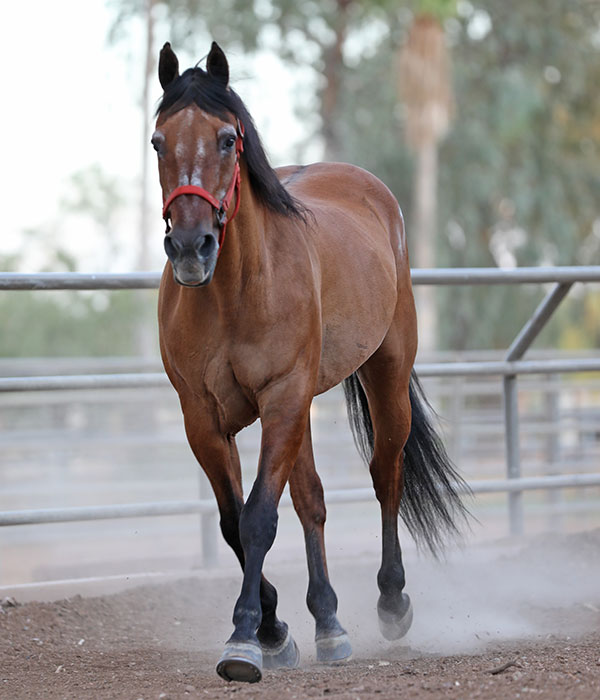
Meet 32-Year-Old Costa
6-Time CMSA World & National Champion
Team Roping Money Earner
NRCHA Money Earner
El Costa Prom, a Platinum client since 2004, is loved and cared for by Annie Bianco-Ellett. “My stallion, Costa, is one of those once-in-a-lifetime horses. He’s a very special horse, and he gets better treatment than me. It’s all in the way you take care of them and their maintenance. And that’s where the Platinum has been a godsend for him. I really feel that it has given him longevity. When Costa was about 17, I noticed a little decline in his performance. We got him on a Platinum program, and it was amazing. We were able to compete together until he was 25 in open-level events. He’s been on Platinum now for 15 years, and people can’t believe he’s 32 years old.”
PHOTO BY TRISTEN WIKEL
Digestion Begins in the Mouth
Dental issues and abnormalities are common in senior horses and can result in difficulty chewing and grinding food resulting in lower overall digestibility as feed travels through the gastrointestinal tract. Pain from oral ulcers, dental disease and complications from equine odontoclastic tooth resorption and hypercementosis (EROTH) can all decrease a senior horse’s desire and ability to chew hay and feed. Because the particle size of feed that leaves a horse’s mouth remains relatively constant, a reduction in grinding ability results in larger feed particles being swallowed and eventually passed in the manure. Horses with loose or missing teeth may drop or swallow larger boluses of feed, decreasing the surface area needed for proper digestion from digestive enzymes in the foregut and intestinal microbes in the hindgut. It is because of this that impactions are more common in older horses when compared to younger horses. Older horses may not move around as freely, resulting in a decrease in intestinal motility and a suboptimal water intake. In addition to ensuring that a senior horse has proper dental care from their veterinarian and providing feed that is easy to chew, supplemental water intake from consuming soaked feeds can significantly help horses with compromised or missing teeth.
Long-stem fiber from hay or pasture grass helps to promote intestinal motility for horses of all ages but also requires more chewing and salivation, helping to both moisten feed and buffer acid produced in the stomach. Both saliva and salivary enzyme production may lessen with age and could diminish a senior horse’s ability to properly digest nutrients. Saliva contains the amylase enzyme, which starts the digestion of starch as soon as a meal is ingested. If salivary enzymes are not produced in adequate levels, carbohydrates (starch and sugar) may not be digested properly in the foregut, and the horse may be deprived of the full nutrient content of the feed, including a reduction in calories, amino acids, fats and vitamins that are needed to maintain health and repair tissues. Additionally, there is a potential risk that undigested starch and sugar from the foregut will enter into the hindgut, disrupting the pH and altering the intestinal microbes that could potentially lead to hindgut acidosis, colic, endotoxemia and laminitis. A lack of saliva can also result in less chewing, which can be mitigated by simply moistening a senior horse’s feeds. Hay cubes, hay pellets, beet pulp and senior feeds can all be soaked in water to facilitate ease of chewing.
Cruisin Tux
17-years-old
Cruisin Tux, APHA gelding, is loved and cared for by Amanda.
“He’s taught so many people the ropes of showing in low-level hunters before coming to me, and he now has a forever home with me. We’ve been battling several injuries over the last few years. All of which make me question if he should retire. Spinner loves his job and having something to do and always comes back, so we continue letting him have something to do — even if I modify my goals to fit his needs. He’s the best and deserves whatever I can provide him with. Platinum Performance has been part of his recovery plan since January 2019!”
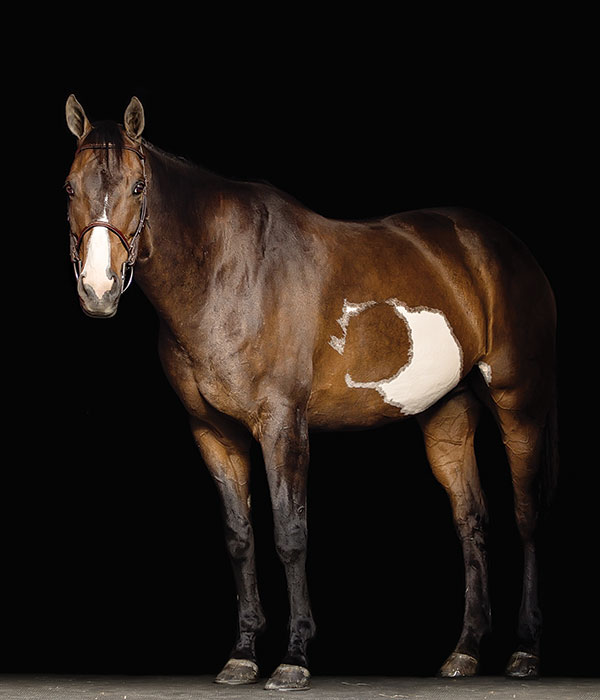
Feeding to Increase Body Condition
Senior horses may be underweight or overweight, although very old horses often experience difficulty maintaining weight and often show signs of muscle wasting along their back and hind end. Although weight loss is sometimes attributable to poor dentition in a senior, as with any horse, it is important to rule out other potential causes, including systemic health concerns like renal or hepatic disease, neoplasia, internal abscessation or chronic endocrine disorders, such as PPID. Once systemic health concerns can be eliminated as the cause of weight loss, weight gain can be addressed by ensuring good dental care and adjusting the diet to include enough total calories from a variety of highly-digestible feeds.
If a horse that has always maintained its body condition on a hay-only diet begins to drop weight, consider adding a softer, leafier hay, such as an immature cutting of grass hay or alfalfa to the diet. Younger forages typically have a higher digestibility and may be easier for senior horses to chew, which then improves the availability of nutrients during digestion. Mixing different types of forages can offer a more complete and beneficial blend of amino acids as well. Even if the horse has few or no teeth, daily, consistent access to fiber from roughage is still vital to equine health. For horses with severe irreversible dental problems, long-stem fiber may be replaced with other fiber sources, such as chopped forage, hay cubes or hay pellets. These alternative forage products can all be soaked until very soft. If a senior horse is unable to chew hay, continuing to emulate the natural trickle feeding behavior of horses by offering these forage “meals” several times throughout the day can increase overall daily intake as well as reduce the risk of colic and diarrhea. Forage sources should be fed at a rate of at least 1 to 1.5 percent of the horse’s total body weight daily. Soaked beet pulp pellets and shreds can be useful feed sources as they are high in fiber, easier to chew and deliver more calories per pound than regular hay. Adding a bran to straight beet pulp can increase calories and help balance major minerals, particularly with an alfalfa-based diet. Healthy oils, such as flaxseed oil, provide beneficial omega-3 fats that can be topdressed onto most feeds and provide another easy way to boost calories in the diet of a senior horse. Any feed changes (including between changes of hay) should be made slowly over 7 to 10 days to allow the hindgut microbial population to adjust.
Since their introduction in the 1990s, commercially- formulated senior horse feeds have become extremely prevalent in the feed industry. Many senior feeds are also considered “complete feeds” because they provide a high enough concentration of fiber that additional hay or pasture grass is not necessary in the diet. These commercial complete senior feeds are often designed to be fed as the sole dietary source for horses with diminished chewing capabilities or horses that require a highly-digestible feed. Senior feeds are typically softer, easier to chew and are usually processed in a way to increase digestibility. Senior feeds tend to be formulated with a higher crude protein content of 12 to 16 percent compared to many horse feeds that contain 8 to 10 percent crude protein. Starch and sugar levels vary widely depending on the ingredients used, and an appropriate product should be selected based on a horse’s individual health management needs. Reputable senior feeds can be fed to support horses with digestive complications, to promote weight gain and to aid horses with poor dentition. If complete or senior feeds are used as the sole feed in the diet, it is important to divide the total amount into multiple daily feedings.
Managing Metabolic Changes
Senior horses that are overweight or obese may not be as physically active, may have a slowed metabolism or some may have alterations in their hormonal balance. In these horses, the diet becomes crucial for maintaining wellness and longevity. Many overweight senior horses thrive on a very basic forage-only diet that is combined with a comprehensive omega-3 fatty acid, vitamin, mineral and antioxidant supplement. When hay comprises the majority, if not all, of the diet, hay testing may be advisable. For horses that have or are prone to Cushing’s disease, equine metabolic syndrome, laminitis or thyroid dysfunction, it is recommended to feed hays with a lower concentration of non-structural carbohydrates (NSC, starch and sugar content) as the basis of the diet and to reduce or eliminate feeds that contain a high concentration of starch like sweet feeds. Slow feeder devices or small hole hay nets can help to allow a horse to have access to necessary forage throughout the day. If the horse has joint issues associated with the excess weight, a joint supplement can be added to support comfort with nutrients, such as glucosamine, hyaluronic acid and MSM. A common concern is the effect that glucosamine has on blood glucose concentrations. A study showed that there was no significant increase in fasting or post-prandial blood glucose concentrations in horses given a daily dose of 8,500 mg of glucosamine sulfate compared to non-supplemented controls. Weight loss can be achieved by feeding a slightly calorie-restricted diet that is designed under the guidance of a veterinarian.
A Closer Look
By The Numbers
16
Current research generally defines horses over 16 years old as “aged” horses. In a large survey of horse owners with older horses, owners perceived horses as being “old” at approximately 22 years of age.
1-1.5
Forage sources should be fed at a rate of at least 1 to 1.5 percent of the horse’s total body weight daily. Soaked beet pulp pellets and shreds can be useful feed sources since they are high in fiber, easier to chew and deliver more calories per pound than regular hay.
12-16%
Many senior feeds include added digestive enzymes and probiotics to further support digestive efficiency. Senior feeds tend to be formulated with a higher crude protein content of 12 to 16 percent compared to many horse feeds that contain 8 to 10 percent crude protein, and also incorporate high-quality sources of protein, such as soybean meal or whey to improve protein digestibility. Senior-labeled feeds tend to be naturally softer than other more coarse horse feeds, and the senior feed pellets can be soaked to make a mash for horses that have difficulty chewing and swallowing.
7-10
Any feed changes (including between shipments of hay) should be made slowly over 7 to 10 days to allow the hindgut microbial population to adjust to new foods. Horses should always be provided with a source of plain, white salt as well as fresh, clean water.
70%
With more than 70 percent of the immune system residing in the digestive tract, supplementing with pre- and probiotics can be advantageous to the aging horse.
Targeted Senior Support
Cellular changes in the body that occur as an animal ages can influence the competence of the immune system, making a senior more susceptible to health concerns. Senior horses may experience some degree of compromised immunity even when they are healthy. “Inflamm-aging” in aged horses refers to those that may be in a state of unmanaged inflammation, which may contribute to the development of certain age-associated issues. Free radical accumulation may closely be involved in aging and age-related conditions in horses like in other species. When affected by a health concern like equine Cushing’s disease, senior horses may develop and succumb to other systemic infections more frequently than a horse of a younger age. Respiratory and skin allergies, as well as abscesses and other infections are indicators that the immune system may require extra support. Stress reduction and a diet rich in antioxidants and omega-3 fatty acids can help to support the aging immune system. A general practice to support senior health is to help keep their immune system “prepared” at all times by feeding a forage-based, balanced diet with specific nutrients to support healthy levels of inflammation and immunity, such as probiotics, omega-3 fatty acids, antioxidants and joint-supporting nutrients.
Prebiotics & Probiotics
Older horses may benefit from supplementary preand probiotics to support digestive efficiency and immunity. Prebiotics and probiotics can help produce and maintain the beneficial bacteria needed for proper fiber digestion, as well as to improve fermentative efficiency and absorption of nutrients. Prebiotics are bacterial fermentation products that selectively aid in the growth, survival and function of the desirable intestinal microflora by acting as a direct nutrient source for the microbes. Enhanced function of the intestinal microbes then supports digestive efficiency. For example, Aspergillus oryzae fermentation products support gut health by enhancing fiber breakdown. This increases the bioavailability of fiber for fiber-digesting microbes in the hindgut, which is critical for horses as they are a hindgut-fermenting animal that acquires a large portion of their energy requirements from the fermentation of dietary fiber. As a prebiotic, the fermentation products of A. oryzae selectively support the activity of the desirable bacteria in the gut.
Probiotics are viable, live microorganisms that provide a health benefit to the horse beyond their nutritive value. Saccharomyces cerevisiae is a yeast species that supports starch and fiber utilization in addition to microbial activity, nutrient digestibility and feed efficiency. Supplementation with S. cerevisiae may limit the detrimental effects of a decreased pH in the cecum and colon coupled with increased concentrations of lactic acid, an intestinal effect commonly seen with modern, high-grain feeding practices. Another probiotic strain, Saccharomyces boulardii, offers immune and anti-pathogenic advantages. S. boulardii may be helpful in the management of several types of diarrhea and helps to reduce adherence of bacterial pathogens to intestinal cell walls, thereby neutralizing common toxins in the GI tract. With more than 70 percent of the immune system residing in the digestive tract, supplementing with pre- and probiotics can be advantageous to the aging horse.

Splash
17-years-old
“When Splash came to us, he was underweight, his coat was dull and he had rubbed out all of the hair on his chest. Platinum Performance has helped him put on weight and given his coat shine.”
PHOTO BY AMY STONEY
Omega-3 Fatty Acids
Like most horses, senior horses can benefit from supplemental omega-3 fatty acids in the diet. These specialized fats are unable to be manufactured internally by the horse and must be consumed daily from the diet. Omega-3 fatty acids are found in elevated concentrations in fresh pasture grass, flaxseed and flaxseed oil. Their well-documented benefits offer a multitude of systemic advantages, including support for immune function, managing healthy levels of inflammation, joint health, regulation of blood insulin concentrations and healthy skin and hooves.
Antioxidants
Free radical accumulation may closely be involved in aging and age-related health concerns. Oxidative stress and damage caused by reactive oxygen species or free radicals have been implicated in changed immunocompetence and the development of joint disorders in horses. Radical oxygen species promote the degradation of joint components, including the synovial fluid and surrounding cartilage. This joint damage may be counteracted by antioxidants, such as vitamins C and E. Vitamin C is a critical component of cartilage health, and its well-known antioxidant effects may also support against cartilage breakdown. Vitamin C is important for maintaining immune function as well as being a natural antihistamine and may be useful for respiratory or skin allergies. Vitamin C is typically manufactured at adequate levels in the liver of the adult horse. Blood vitamin C levels have been demonstrated to be lower in older horses and senior horses may benefit from supplemental vitamin C as their bodies may be less able to accomplish adequate production levels. Supplementation with natural vitamin E (d-alpha tocopherol) may be recommended for aging horses as it provides potent antioxidant benefits and support for many health areas of concern, including immune, muscular, vascular and neurological. Vitamin E plays a key role in immune system function and may be beneficial for older horses experiencing immunosenescence, the decline in immune function because of the aging process. Vitamin E is recommended to support against oxidative activity and support healthy levels of airway inflammation. Vitamin E is plentiful in fresh, green grass but most likely will require supplementation for older horses on a hay-only diet or when grass is inadequate due to seasonality
Antioxidants such as vitamin C, manganese and zinc also may play a role in mitigating the progression of age-related joint conditions.
Joint Nutrients
Joint concerns are a common degenerative health condition that develop during the natural aging process. Specific dietary nutrients such as omega-3 fatty acids, antioxidants and hyaluronic acid may help support healthy levels of inflammation and provide comfort from these conditions. Omega-3 fatty acids have been shown to provide a supportive role in joint health as they address enzymatic activity responsible for cartilage degradation. Antioxidants such as vitamin C, manganese and zinc also may play a role in mitigating the progression of age-related joint conditions. The common joint-supporting nutrient glucosamine is a precursor of glycosaminoglycans, such as chondroitin sulfate and hyaluronan, which naturally occur in the joint capsule and form the extracellular matrix of cartilage. Glucosamine addresses the activity of collagen-degrading enzymes and supports cartilage protein synthesis. Hyaluronic acid is a key component of the synovial fluid that nourishes, lubricates and protects the joints. Studies have shown oral hyaluronic acid to be bioavailable and support healthy levels of inflammation in the synovial fluid. Supplementing with omega-3 fatty acids, vitamins, trace minerals, antioxidants and specific joint nutraceuticals on a daily basis may support healthy levels of inflammation and protect against oxidative stress associated joint health concerns. Along with proper farrier and veterinary work, allowing turnout for senior horses is important to encourage low-impact movement; adequate warmup and cool-down time for exercising seniors is also recommended. Although joint issues are commonly thought of as being in the legs, older horses may also have osteoarthritis in the neck. Grazing hay from a raised manger or hay net may be more comfortable for these horses as ground feeding may be difficult or cause discomfort. This small management adjustment may increase feed intake and weight gain.
“Lucy’s like a fine wine; she’s gotten better with age. I love the way she gets to work, even in her older age, and she’s been able to bounce back from injury without missing a beat. Even though she’s ‘semi-retired,’ she looks and acts like she did 10 years ago!”
— Sarah & Talk About Details, a.k.a. Lucy, Platinum Performance® Client since 2019
Lucy is 20 years old
Special Considerations for Older Horses
Several social and environmental changes may affect the appetite or feed intake for a senior horse. Often, older horses are moved down the herd hierarchy, especially if new horses are introduced. Older horses may physically eat at a slower rate due to failing teeth and may be unable to finish eating before being pushed off their feed by other more dominant horses. Feeding older horses separately can be very helpful as it lowers the stress of mealtimes and allows them the opportunity and time to finish their feed. The loss of a companion horse or abrupt changes to the schedule of a senior horse may also reduce appetite. In colder temperatures, older horses may require higher energy/calorie intake due to reduced thermoregulatory abilities.
Long Live Seniors
With proper veterinary care and key dietary adjustments, senior horses are often able to live healthy and active lives for longer than ever thought possible. Maximizing digestive efficiency and supporting fiber digestion are critical components in helping to ensure that senior horses maintain a healthy weight and receive the nutrients necessary to thrive throughout their later years. Older horses can continue to get most, if not all, of their calories from high-quality forage by way of pasture or hay as long as they are able to properly chew and maintain an appropriate body condition score. For those senior horses needing additional support, adding dietary ingredients that offer fermentable fiber, supplemental protein and calories can be provided. Aged horses can benefit from the addition of a comprehensive omega-3 fatty acid, antioxidant, vitamin and trace mineral supplement that complements a forage-based diet and can help a senior horse to both meet all nutrient requirements and maintain a healthy level of inflammation. With preventative care centered around dental health, digestive efficiency and physical comfort, senior horses are capable of living long and healthy lives, maintaining their valued place in barns and families everywhere. God bless old horses, and long may they live.
Supplements to Support Your Senior
Concerns that Affect Senior Horses & the Platinum Products That can Help
Need a Custom Plan?
Platinum Advisors can help you and find answers and resources for all of your questions. With backgrounds and degrees in animal science, nutrition and several related fields, Platinum Advisors can make recommendations and help you design a supplement program that’s right for your horse.
Call to speak with a Platinum Advisor today! 800-553-2400

by Emily Smith, MS,
Platinum Performance®
You May Also Like
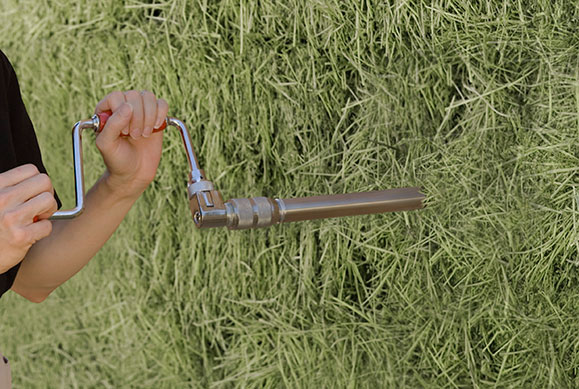
Understanding a Hay Analysis: Getting to Know the Nutrients
There is value in knowing what you are feeding your horse, so you can better fill in any nutritional gaps.
Read More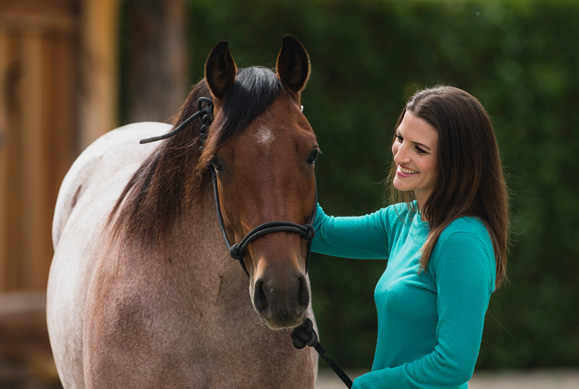
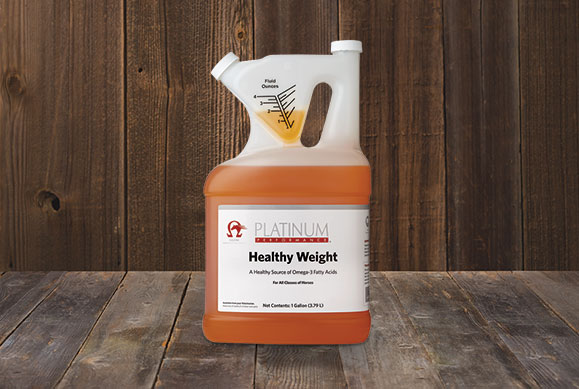
Which Oil is Healthy for Horses?
Omega-3 differences between flax, corn, canola, soybean and vegetable oil.
Read More about Oil for Horses